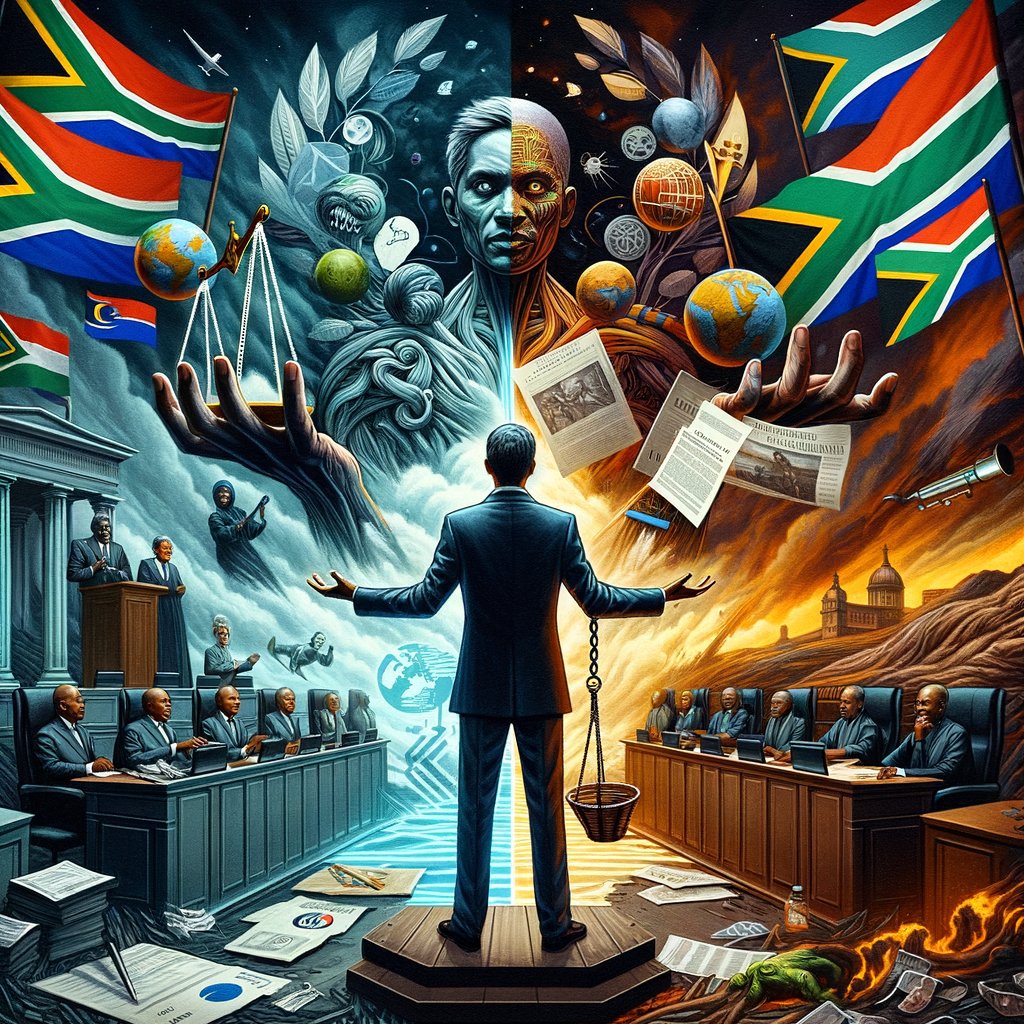Image created by AI
Ramaphosa’s High-Stakes Foreign Policy Gamble: Straining Ties with the U.S. Over ICJ Warrants
South African President Cyril Ramaphosa's latest maneuvers in foreign policy are proving to be a high-risk gamble with significant implications on the nation's relationships, particularly with the United States. Through an assertive stance represented in a recent article in Foreign Policy, Ramaphosa, alongside other international figures, reaffirmed South Africa's support for the International Court of Justice's (ICJ) warrants against Israeli officials and spotlighted key policy differences with the Trump administration.
This coalition, including countries like Colombia, Malaysia, and Namibia, advocates for decisive actions against what they perceive as Israel’s violations of humanitarian law. The group collectively endorsed not allowing their ports for vessels carrying military supplies to Israel and blocking arms transfers contributing to humanitarian infractions. These strong positions underscore a fundamental shift in how South Africa wishes to address international relations and war crimes.
Ramaphosa’s approach directly contradicts the interests and policies of the U.S., especially under the Trump administration, which had already expressed dissatisfaction with South Africa's foreign policy directions. This discord spans various sectors including trade, diplomatic engagements, and geopolitical alignments, evidenced by Trump's executive order that froze aid concerning land reform policies in South Africa.
Despite these bold international policy moves, Ramaphosa's internal rhetoric at a Goldman Sachs investor meeting suggested a different narrative, one inclined toward negotiating a broad spectrum of issues with the U.S. This apparent contradiction highlights a lack of coherent strategy in balancing South Africa's bold foreign policy moves with its economic and diplomatic necessities.
Domestically, the situation is just as complex. With the introduction of the “Equitable Access to Land Bill,” aimed at redistributing land to redress past injustices, Ramaphosa risks alienating major agricultural players crucial to the country’s economy. These legislative moves, together with foreign policy stances, might be perceived as politically motivated to divert from internal issues like economic stagnation and record-high unemployment which plague Ramaphosa’s administration.
In conclusion, while trying to assert its moral and political will on the international stage, South Africa under Ramaphosa’s leadership must tread carefully. Any missteps could lead to significant economic fallout, particularly if the U.S. decides to revisit trade agreements like the African Growth and Opportunity Act (AGOA). The situation calls for a delicate balance between moral leadership and pragmatic diplomacy, as the stakes are extremely high not only for South Africa's global standing but also for its domestic economic health.










